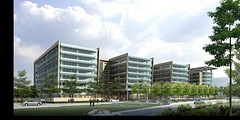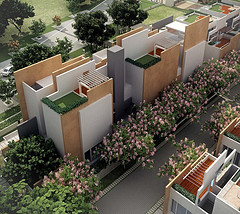The sale of Leela Kempinski Kovalam was among the top 10 hotel deals in Asia during the past one year, shows data from the US-based research firm Real Capital Analytics.
Real Capital, which tracks and analyses real estate deals worth over $10 million across apartments, hotels, retail, industrial, office and development projects over the world, has also named Noida as a top site for sales in the development site category for a deal with the Wave Group for a mega mixed-use project. Mumbai and Bangalore also figure among the active office markets in Asia. In apartments, Delhi and Mumbai are part of the top league in the year ended March 31, 2012.
The Leela Kovalam deal, pegged at about Rs 500 crore, was the 10th in the Asia-list of largest hotel sellers during the one-year period. The Kovalam beach property was sold to Saudi Arabia-based industrialist Ravi Pillai last August.
The other big hotel players in Asia which sold properties at high value include Japan Hotel, LaSalle, Kingdom Holding, Hines and Shui On Group.
Even as Indian entities don’t figure anywhere in the top 10 global list vis-à-vis high value real estate deals in the financial year that just gone by, many of them have made it to the Asian hall of fame.
Noida, the industrial development area next to Delhi, is fifth in the development site sellers’ list in Asia. This was for a deal with industrialist Ponty Chadha-promoted Wave Group for the mixed-use project, Wave Mega City Centre, at an estimated price of $1.4 billion (about Rs 7,140 crore at the current forex rate), according to Doug Murphy, director (analytics) at Real Capital.
In the office space, Bangalore and Mumbai have been named among the most active Asian markets. “There were a number of locations for office sales in Bangalore and Mumbai, the largest being the Embassy Manyata Business Park transaction in Bangalore for about $537 million (Rs 2,738 crore) and Citibank building in Mumbai for about $224 million (Rs 1,142 crore),” Murphy said. Both transactions took place in August 2011.
Delhi and Mumbai are part of the most active Asian apartment markets. While Delhi is ranked sixth, Mumbai is eighth. Tokyo tops the list in high value apartment deals, followed by Singapore, Hong Kong, Osaka, Beijing, Delhi, Fukuoka, Mumbai, Nagoya and Kuala Lumpur.
India is nowhere in the retail top league where deals in Asia are concerned. Among hotels, Chennai is seen as an active market in the eighth position. Singapore leads as the most active hotel market in Asia, followed by Hong Kong, Shanghai, Tokyo, Beijing, Seoul, Osaka, Chennai, Kuala Lumpur and Suzhou.







